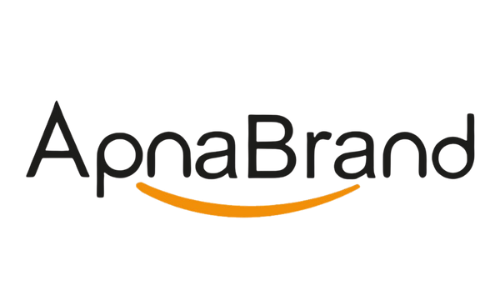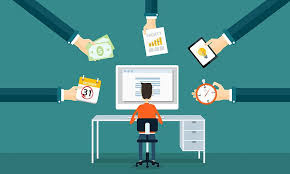Freelancing is transforming the way people work around the world. Instead of sticking to traditional 9-to-5 jobs, millions of people are choosing to work on their own terms — deciding what projects to take, when to work, and how much to earn. This shift isn’t just a trend; it’s a real opportunity to build a flexible and rewarding career. But what if you have no experience? Can you still become a successful freelancer? The answer is a definite yes. Every top freelancer began with zero clients, zero portfolio, and zero income. What helped them succeed was the right strategy, consistent effort, and the willingness to keep learning and improving.
Freelancing means offering your skills or services to individuals or businesses in exchange for payment. Unlike traditional jobs, freelancing allows you to be your own boss. You choose your projects, set your rates, and control your schedule. Whether you want to work part-time to earn extra income or full-time to build a career, freelancing gives you that freedom. Today, people from all over the world are freelancing in fields like writing, graphic design, social media management, web development, translation, virtual assistance, marketing, and more. The beauty of freelancing is that you don’t need a degree or years of work experience to get started. All you need is one skill that can solve a problem for someone.
One of the first steps to starting freelancing with no experience is identifying the skills you can offer. Many beginners make the mistake of thinking they need to be experts before they start. But clients often look for someone who can deliver good, reliable work, not someone with decades of experience. If you can write clearly, design simple visuals, manage social media accounts, edit short videos, or do data entry, you already have a skill that someone is willing to pay for. Some of the most beginner-friendly skills to start with include content writing, copywriting, graphic design, video editing, translation or transcription, data entry, and virtual assistance. Even if you feel you don’t have any of these skills right now, you can learn them through free or affordable online platforms.
Learning and practicing your skill is the next big step. If you’re new, this will be your most important investment. Thanks to the internet, you can learn almost anything without spending a lot of money. Platforms like YouTube offer thousands of free tutorials on almost every skill imaginable. Websites like Coursera, Skillshare, and Udemy provide structured courses that help you learn step by step. If you want to be a writer, start writing blog posts for practice. If you want to be a graphic designer, create sample logos or social media posts. If you want to be a virtual assistant, learn how to manage emails, schedules, or spreadsheets. Practicing helps you build confidence and gives you real examples of your work that you can show to potential clients.
Once you’ve developed some skills, the next step is to build a portfolio. Your portfolio is your proof of skill — it shows clients what you can do, even if you haven’t worked with anyone yet. If you don’t have real clients, create mock projects. Write a sample blog post on a trending topic, design a logo for an imaginary brand, or create a short promotional video for a product. You can then display your portfolio on a simple personal website, a free portfolio platform like Behance (for designers), or even a shared Google Drive folder. The goal is to give clients something visual and clear to trust your abilities.
After building a portfolio, you need to decide where to find freelance work. There are many freelancing platforms that connect freelancers with clients. Some of the best platforms for beginners include Fiverr, Upwork, Freelancer.com, and PeoplePerHour. These platforms are designed to make it easier for new freelancers to get started. Fiverr is great for short, simple projects. Upwork is better for longer and higher-paying work. Freelancer.com allows you to bid on various projects, while PeoplePerHour gives you flexibility across different skill levels. You can start by creating a professional profile on these platforms, highlighting your skills, portfolio, and services.
When you’re new, it’s wise to start small. Instead of aiming for big, high-paying projects right away, focus on getting your first few clients and good reviews. This will help you build a reputation. Clients are often more willing to work with beginners who charge lower rates but deliver quality work. Even if the pay is not high at the beginning, these first few projects will give you valuable experience and positive feedback that you can use to attract better clients later on. Every successful freelancer has taken this step at some point.
To win projects, you’ll need to write strong proposals. A proposal is your short message or pitch to the client explaining why they should choose you. It doesn’t have to be long or complicated. Start by addressing the client by name if possible, then show that you understand their project. Offer a clear solution to their problem and express confidence in your abilities. Keep it short, friendly, and professional. Avoid copying and pasting generic messages — clients can tell when you put real effort into your proposal.
Once you get your first client, this is your chance to make a lasting impression. Freelancing is built on trust and reliability. Deliver your work on time, or even earlier if possible. Communicate clearly with the client, ask questions when needed, and make sure you fully understand the requirements. If the client is satisfied, they are more likely to give you a positive review, rehire you for future work, or even refer you to others. A happy client is one of the most powerful tools for growing your freelance career.
As you grow, building your personal brand becomes more important. Personal branding means presenting yourself as a professional and trustworthy freelancer. This can be done by creating a personal website, being active on social media platforms like LinkedIn, and sharing your work or useful tips related to your field. Use the same name, photo, and tone consistently to look professional. A strong personal brand makes you stand out and helps clients find you instead of you always looking for them.
Freelancing offers flexibility, but it also requires discipline. Since you’re your own boss, managing your time effectively is crucial. You’ll need to plan your days, meet deadlines, and balance multiple projects. Use tools like calendars, to-do lists, and time trackers to stay organized. Consistency is what separates those who succeed in freelancing from those who give up after a few weeks.
The freelance world changes quickly, so keep learning and improving. New tools, trends, and techniques appear all the time. If you want to stay competitive, invest time in learning regularly. Watch tutorials, read blogs, take new courses, and learn from client feedback. The more skills you gain, the more services you can offer and the more you can charge for your work.
Many beginners face common challenges when starting freelancing. You might get rejected by clients or receive no replies at first. Some clients may offer low pay, or you might feel unsure about your abilities. This is normal. Every freelancer faces this stage. The key is to not give up. Keep improving your skills, keep applying for jobs, and keep delivering your best work. Over time, your confidence will grow, and so will your income.
Networking is another powerful way to grow as a freelancer. Joining online freelancing communities on Facebook or LinkedIn can help you connect with other freelancers, learn from their experiences, and even find job opportunities. Building good relationships with clients is just as important. Always be polite, deliver what you promise, and maintain a professional attitude. Happy clients often give repeat work or recommend you to others, which is one of the easiest ways to grow your business without constant job hunting.
Taking action is the most important step of all. Reading guides or watching videos will not help if you don’t start. Create a simple plan: pick one skill you want to learn, practice it daily, build a small portfolio, set up your freelance profile, and start applying for small jobs. Don’t wait until you feel “ready” because no one feels 100% ready at the beginning. The best way to learn freelancing is by doing it.
In just a few months of consistent work, you can go from having no experience to earning your first income online. As your portfolio and reputation grow, you’ll be able to increase your rates, work with bigger clients, and enjoy more freedom. Freelancing can start as a side hustle but turn into a full-time career if you stay focused.
Freelancing isn’t just about making money. It’s about gaining control of your time, working from anywhere, and choosing the projects you love. It gives you the freedom to build a career that fits your life — not the other way around. Starting with no experience may feel intimidating, but every successful freelancer has been in your shoes. What matters most is taking the first step, staying consistent, and never stopping learning.
The path won’t be perfect, and challenges will come. But with determination, you can build something meaningful and sustainable. Freelancing is one of the most accessible opportunities in today’s digital world. If you start today, in a few months, you could be working with clients from around the world and earning a steady income from the comfort of your home. It all begins with one skill, one small step, and the belief that you can do it.



